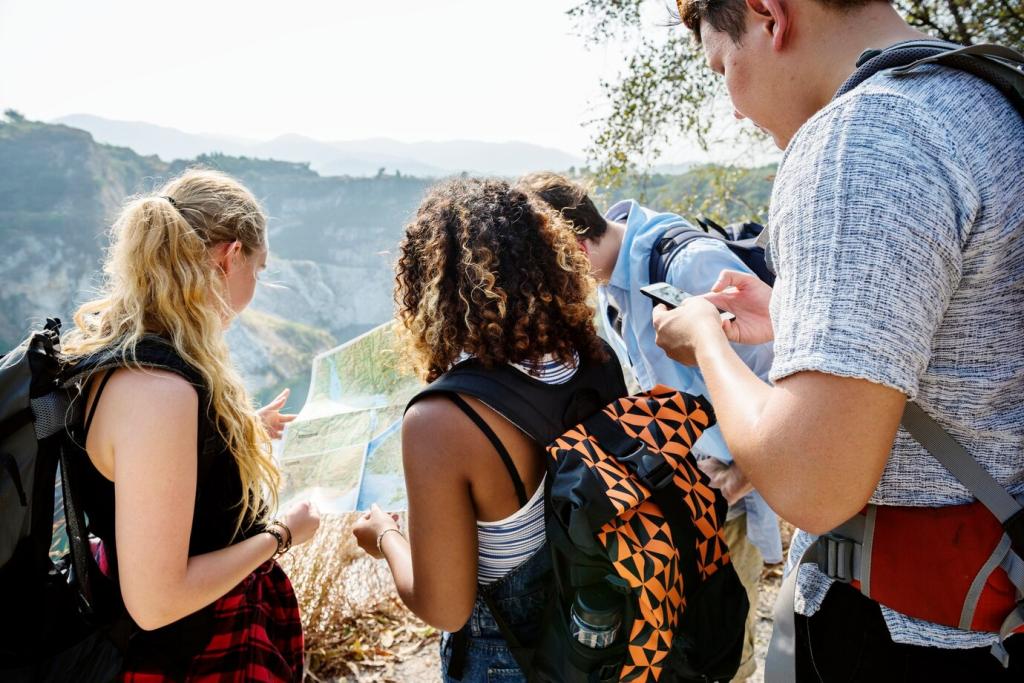
Understanding Global Cultures for Tour Guides
In today’s interconnected world, cultural awareness has become an essential skill for tour guides. Understanding the customs, beliefs, and values of visitors from around the globe not only enriches the travel experience but also ensures smooth and respectful interactions. This page explores the importance of global cultural knowledge, providing tour guides with the insights and strategies needed to navigate diverse cultural situations effectively while delivering memorable tours.

Building Trust through Respect
When a tour guide demonstrates knowledge and respect for a visitor’s cultural background, it lays the foundation for trust. Tourists are more likely to engage and participate when they feel understood and respected. This positive rapport not only makes the tour smoother but also enhances word-of-mouth recommendations and repeat business. Even small gestures, such as greeting travelers in their native language or adjusting explanations to fit their cultural context, can make a significant impact on their experience.

Recognizing Unconscious Bias
Everyone has habits and perspectives shaped by their upbringing, but it’s crucial for tour guides to recognize and manage unconscious biases. Bias may subtly influence how guides address guests or interpret their behavior. By being self-aware and continuously seeking education about other cultures, guides can minimize misunderstandings and prevent misinterpretations that might otherwise offend guests. This conscious effort leads to more authentic, refined, and successful interactions throughout the tour.

Adapting Communication Styles
Different cultures have distinct preferences for communication—some value directness, others more subtle gestures and indirectness. Effective tour guides observe and adapt to these styles, making sure that information is conveyed clearly yet sensitively. Whether by adjusting body language, tone, or the amount of eye contact, tailoring communication demonstrates adaptability and greatly enhances the guest’s experience. Success in this area fosters an environment where all visitors feel comfortable and engaged, regardless of their background.
Navigating Cultural Differences
Understanding Local and Visitor Norms
Each country and culture has its own set of accepted behaviors, gestures, and customs. As a tour guide, being knowledgeable about both the local etiquette and the expectations of foreign visitors is essential. For example, while a certain gesture or phrase might be welcoming in one culture, it could be misleading or inappropriate in another. Striking the right balance ensures that your guests feel at ease while also respecting the community you represent. This dual awareness makes your tours more inclusive and respectful on both ends.


Managing Culture Shock
Visitors can experience culture shock when confronted with unfamiliar customs, food, language, or social norms. A skilled tour guide proactively supports guests through these moments. By patiently answering questions, providing context, and offering comforting reassurances, guides can ease anxiety and foster a more positive and open-minded attitude among travelers. Anticipating common challenges related to culture shock also enables guides to prepare practical solutions, helping guests enjoy their trip and learn from new experiences rather than feeling overwhelmed.

Continuous Learning and Curiosity
Cultural competence is a lifelong process that requires continuous study and curiosity. Successful tour guides actively seek out new information about global customs, current events, and historical contexts that shape their guests’ worldviews. This ongoing learning extends beyond formal training—it includes listening to guest stories, attending cultural festivals, and staying updated through reliable sources. By nurturing an openness to learning, guides remain relevant and empathetic, ready to provide accurate and insightful commentary that inspires and informs their tours.
Applying Sensitivity in Problem-Solving
Tour guides are problem-solvers, often called upon to address issues that arise from miscommunication or differing expectations. Applying cultural sensitivity when resolving such challenges is vital. Instead of reacting defensively, culturally competent guides step back, consider all perspectives, and work towards solutions that respect individual values. These thoughtful responses not only defuse tension but also set a positive example for other travelers, reinforcing the guide’s leadership and professionalism.
Encouraging Cultural Exchange
While sharing local knowledge is essential, a culturally competent tour guide also encourages guests to share their own customs and stories. Facilitating moments of exchange—whether through food, language, or storytelling—transforms the tour into a two-way learning experience. These interactions enrich the journey for everyone involved, promoting greater understanding and appreciation across cultures. Encouraging this dialogue helps visitors return home with not only wonderful memories but also a deeper respect for global diversity.
